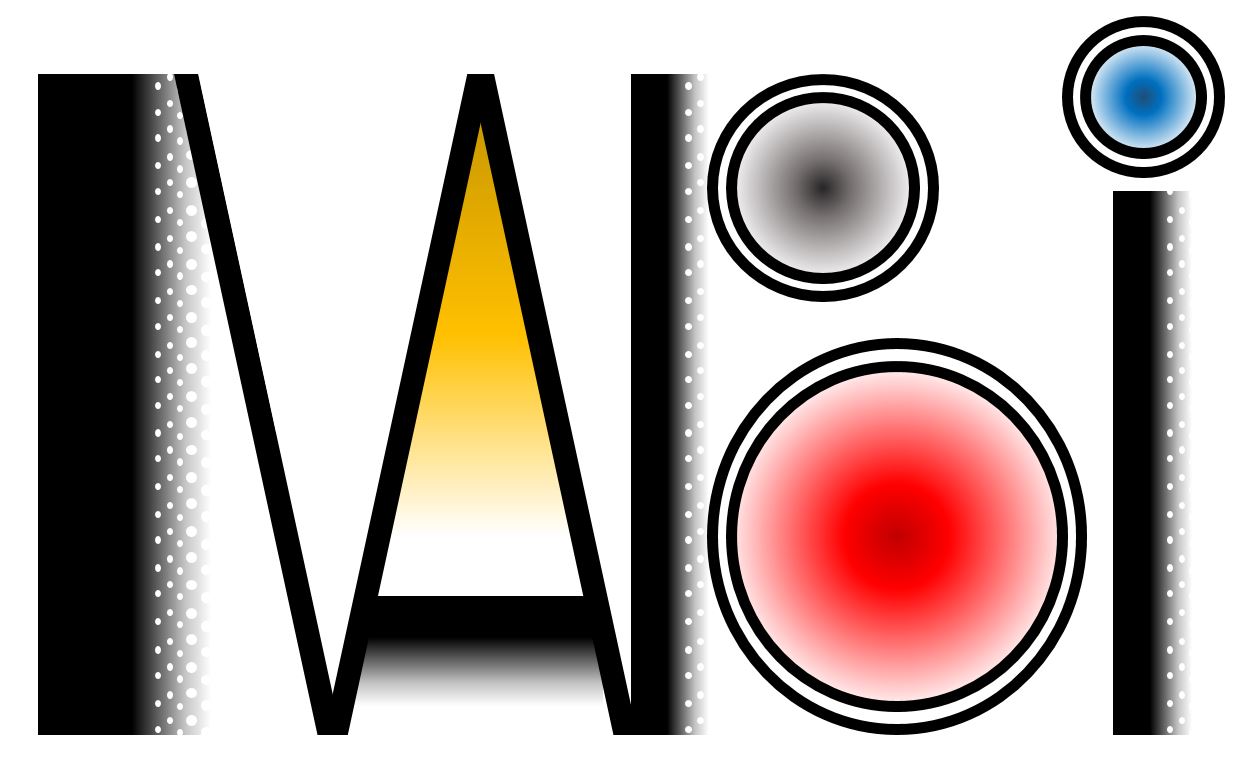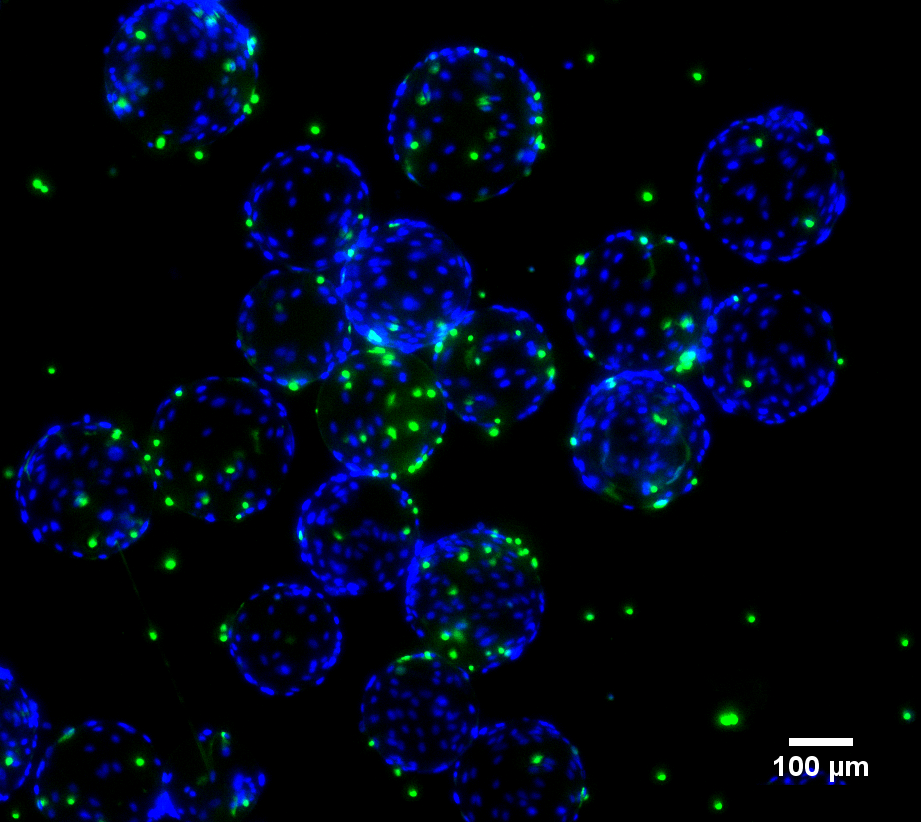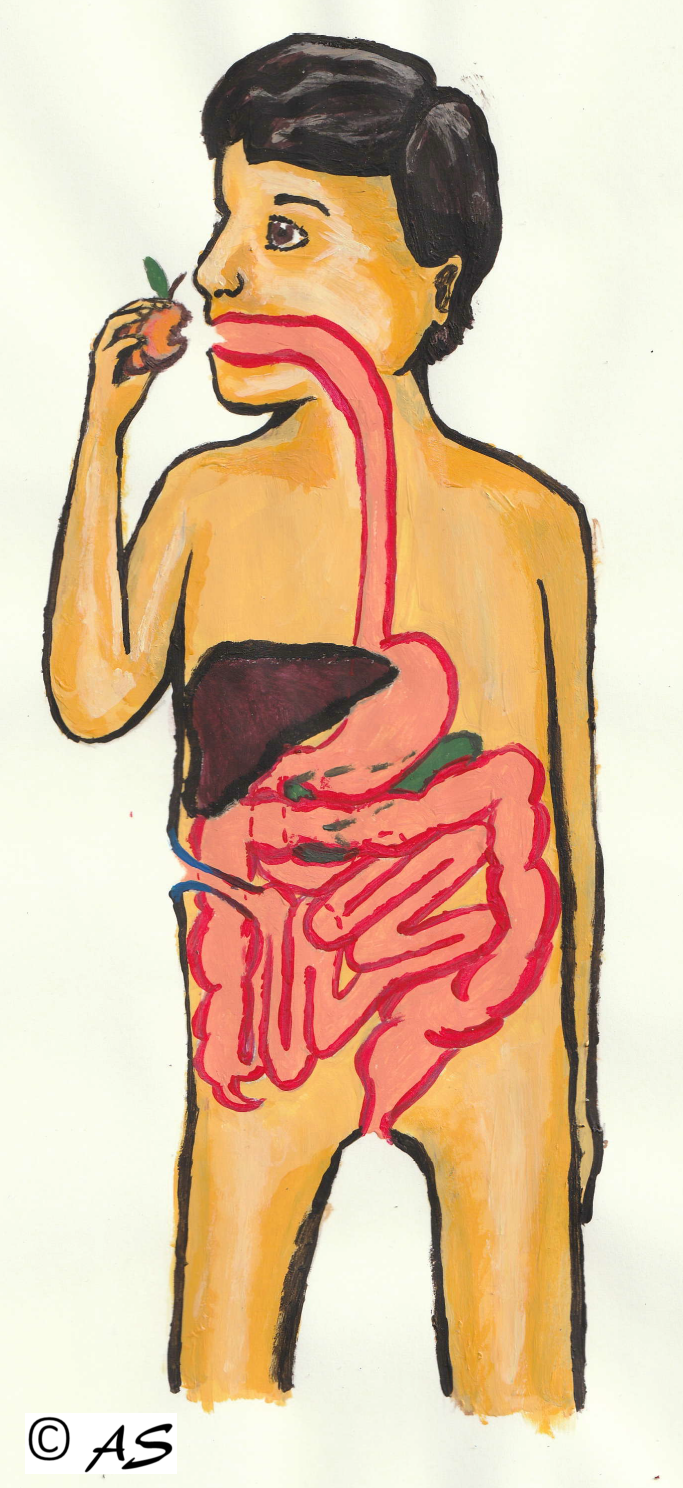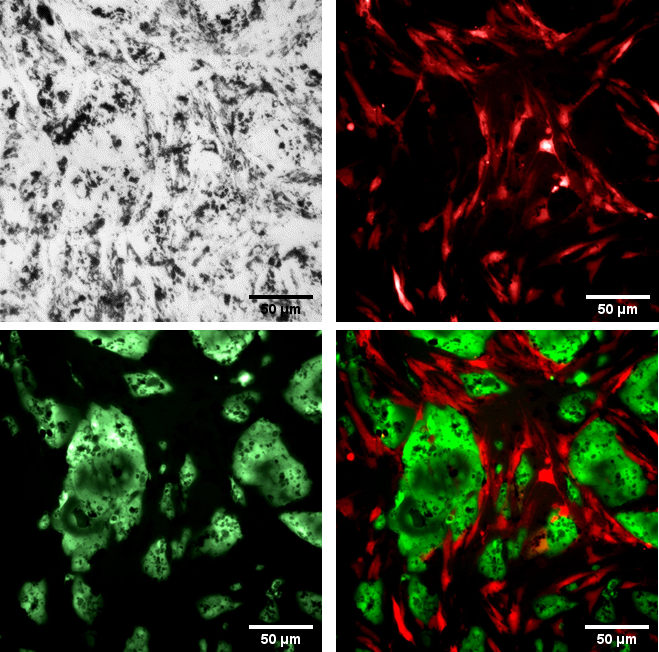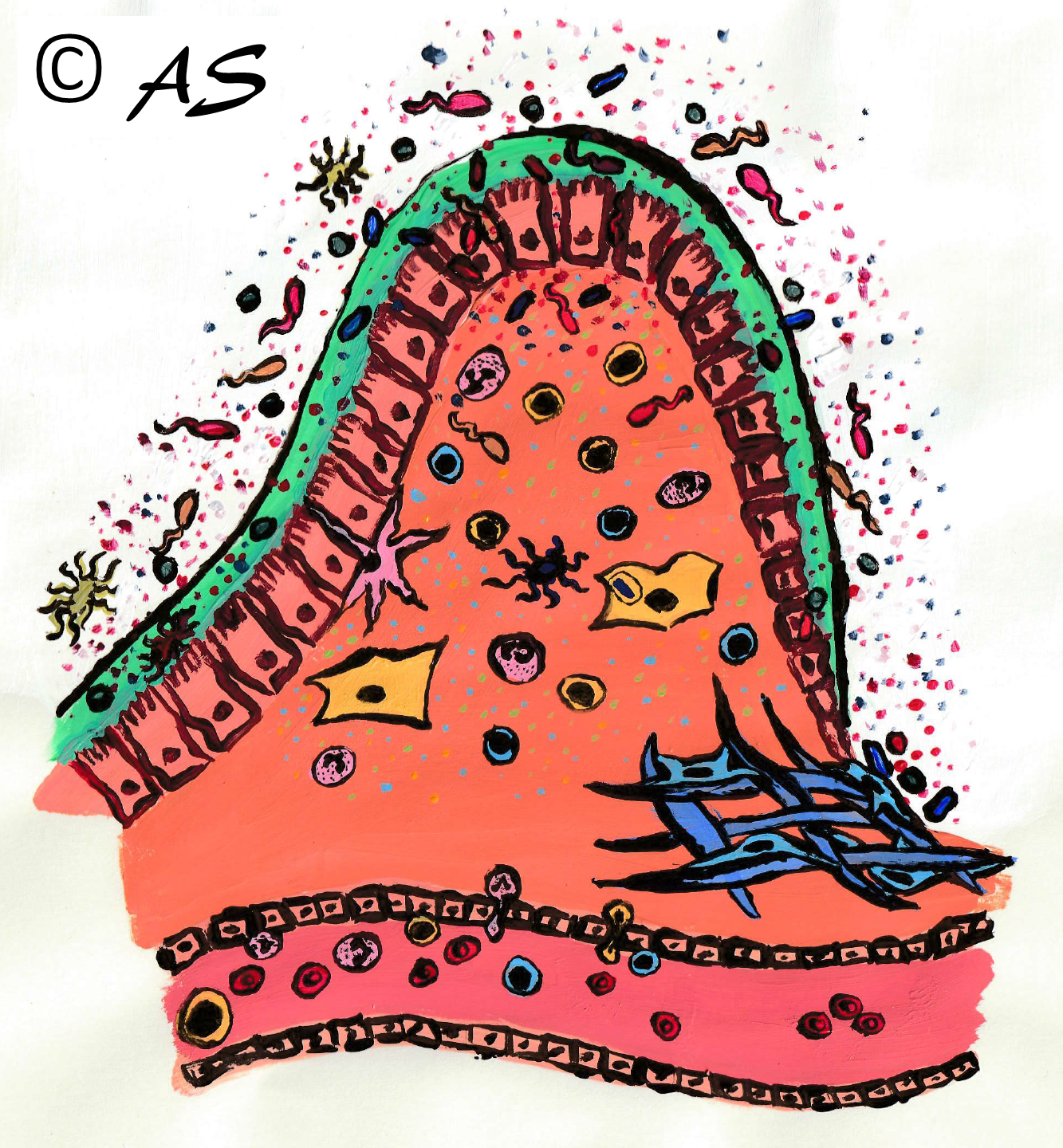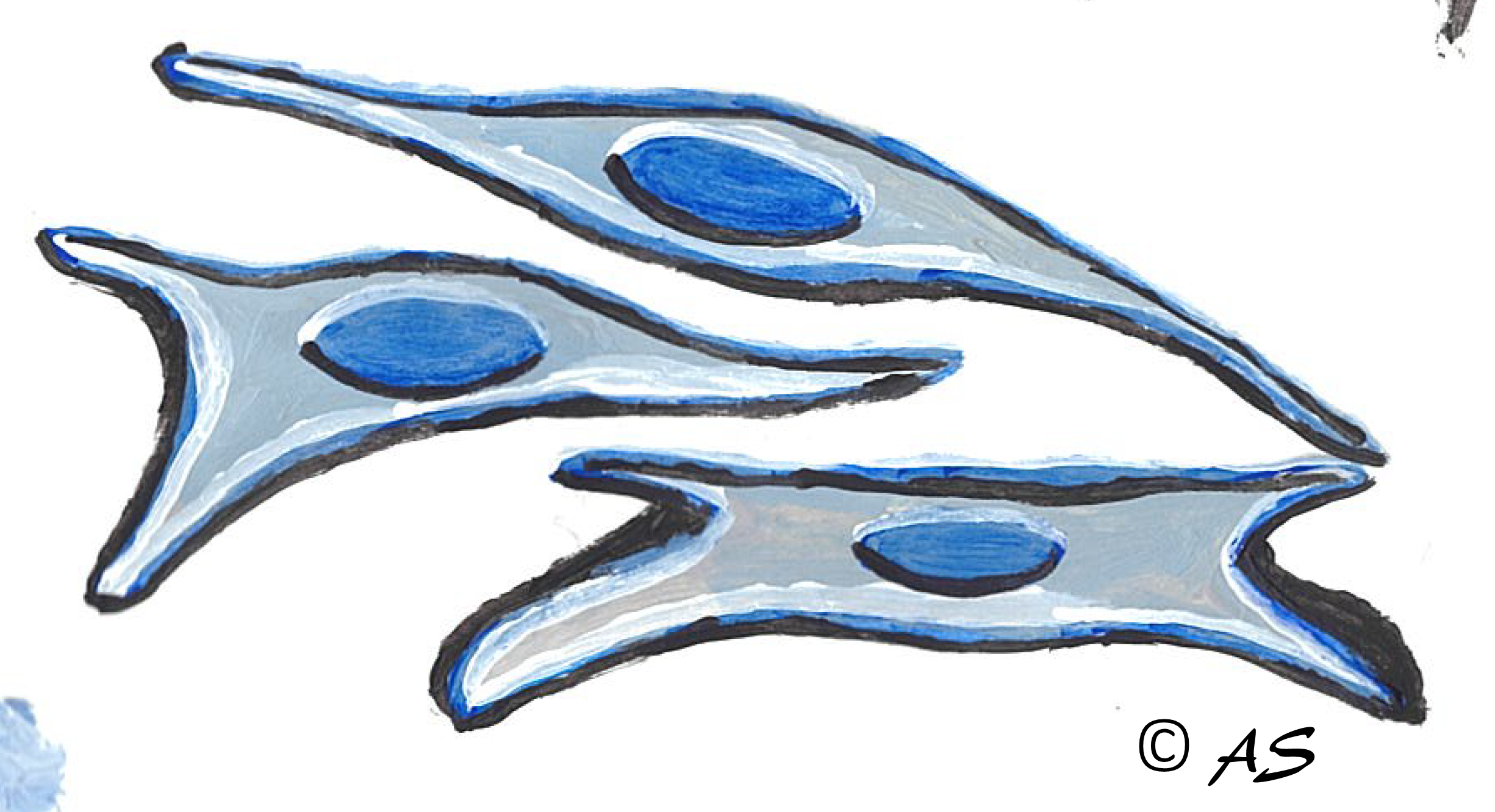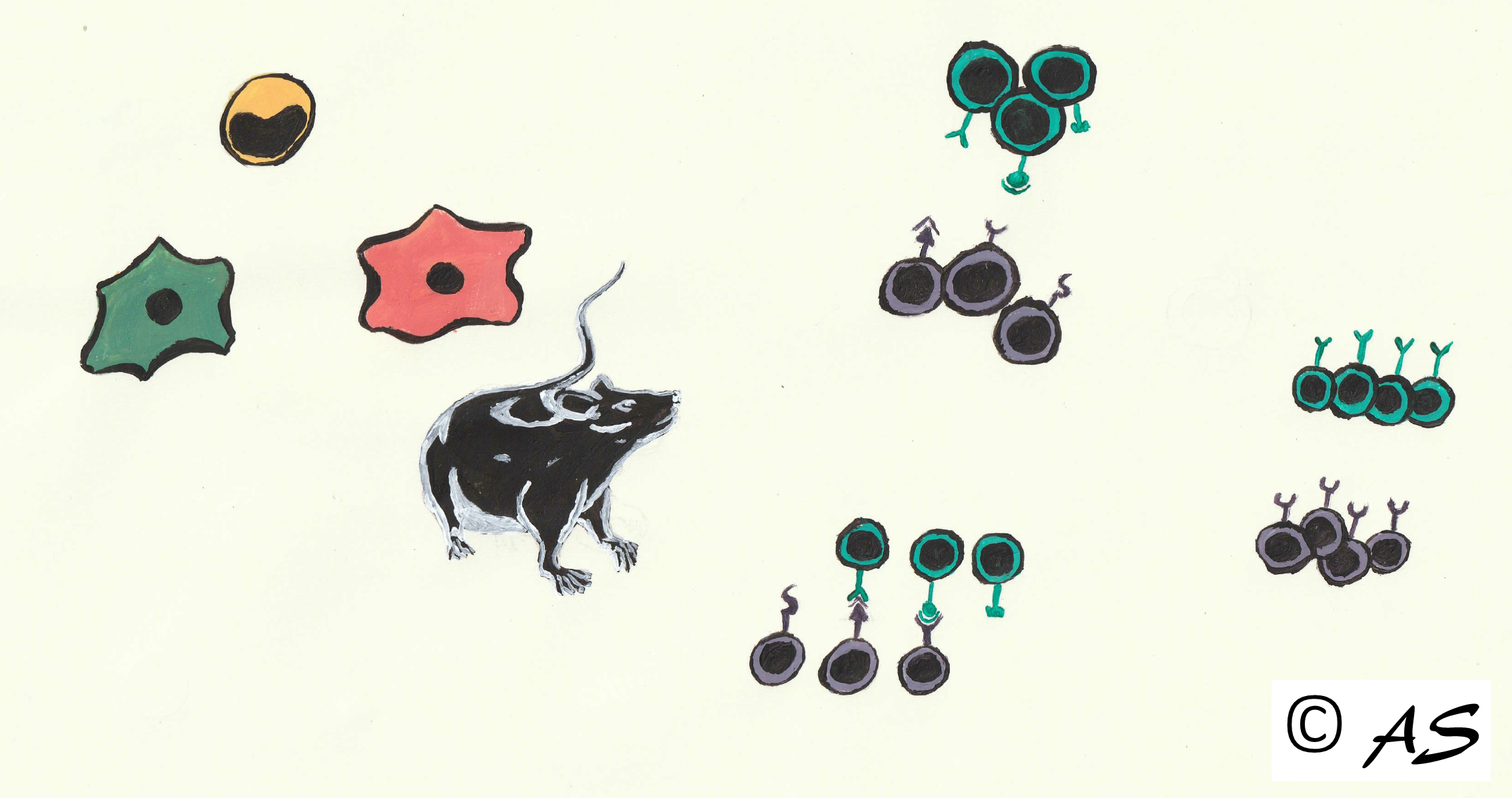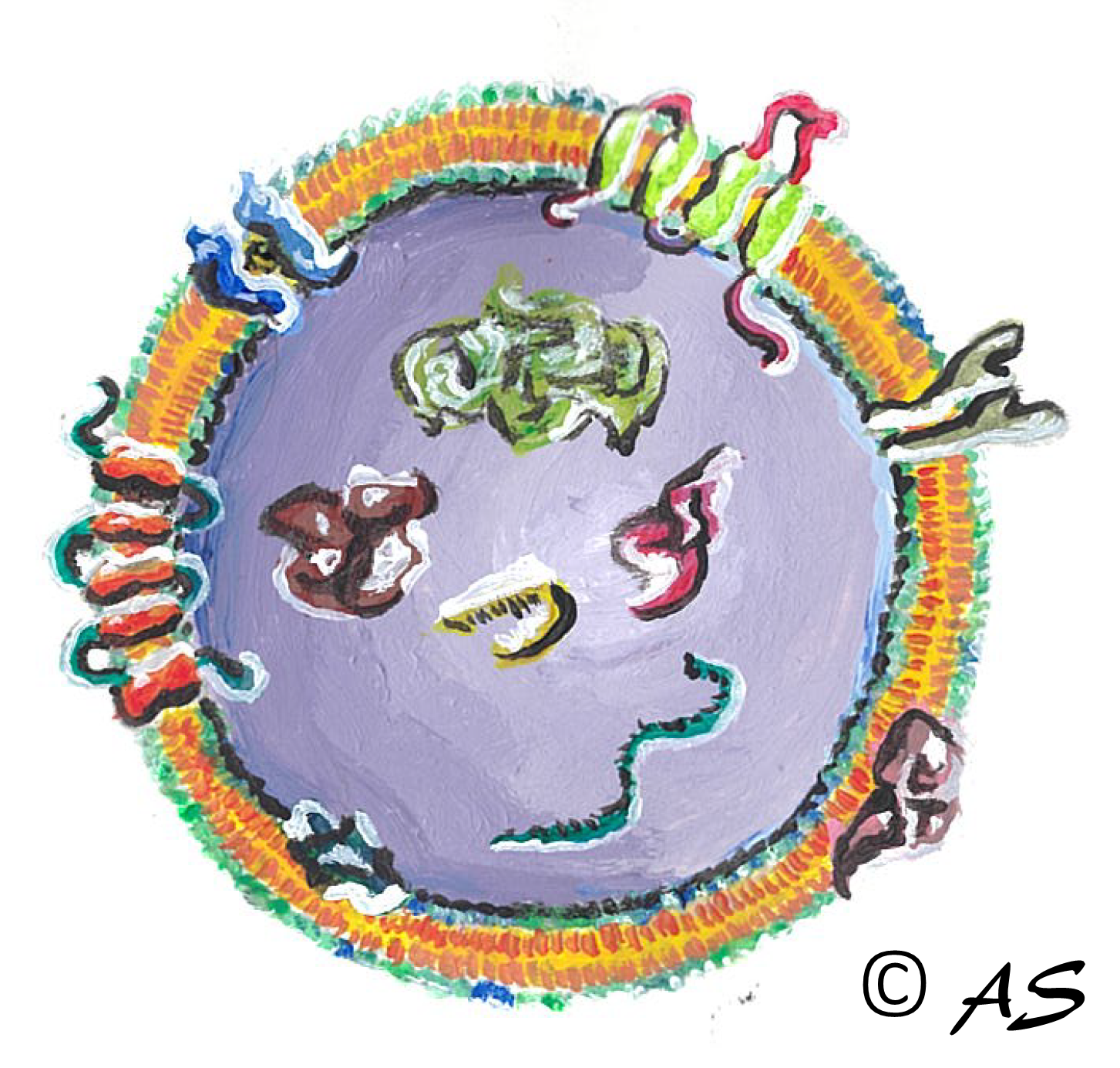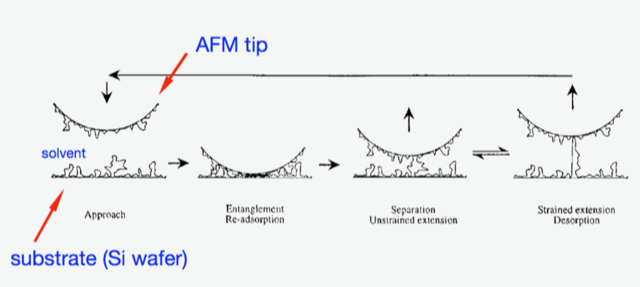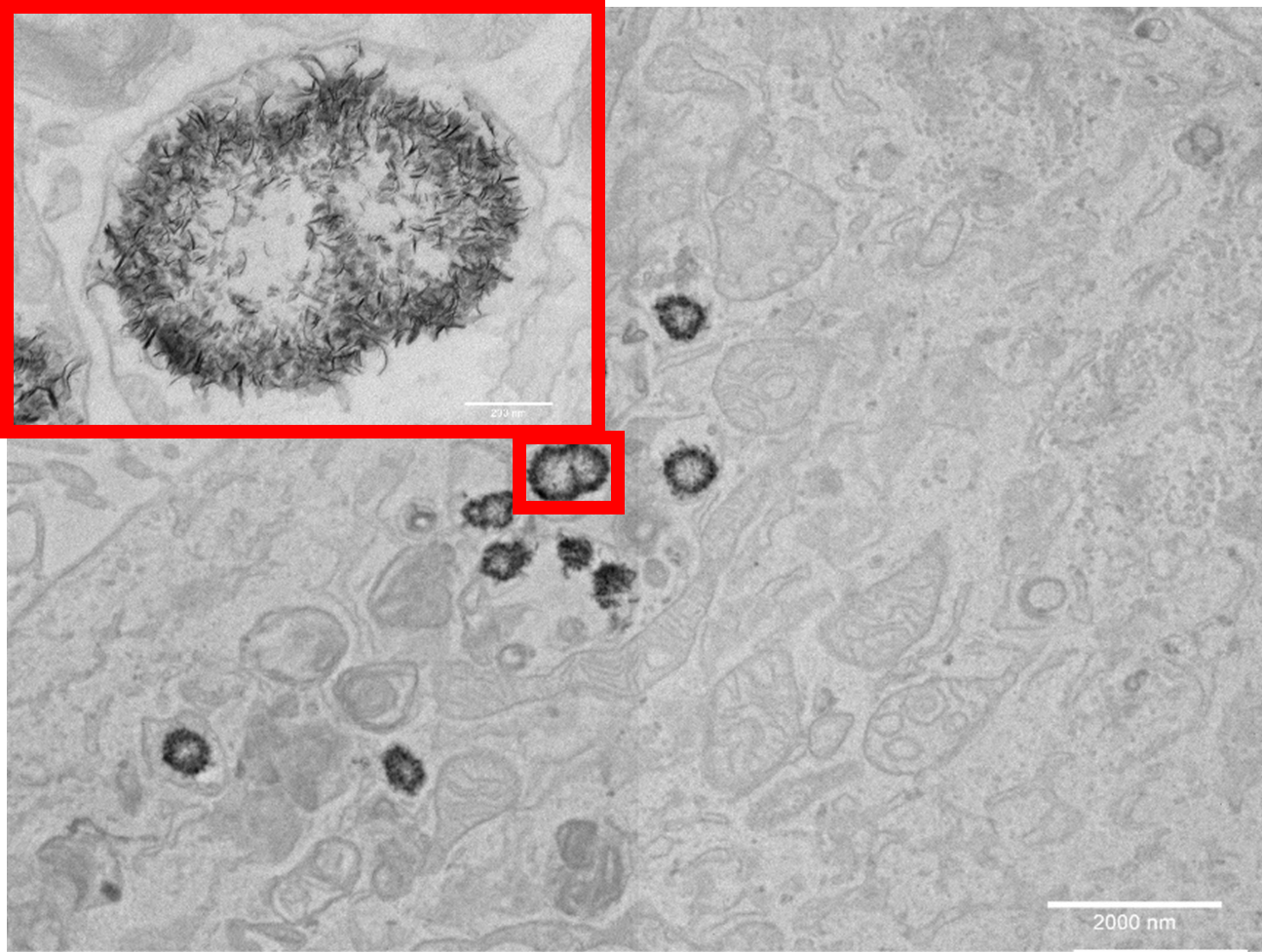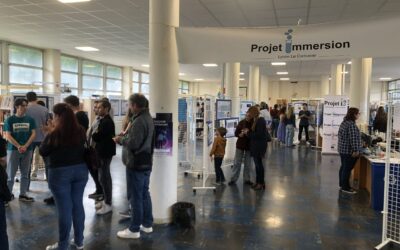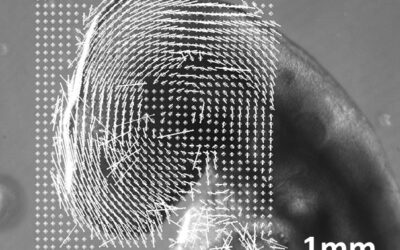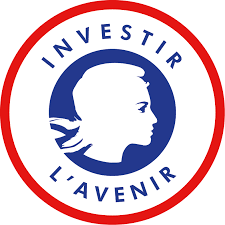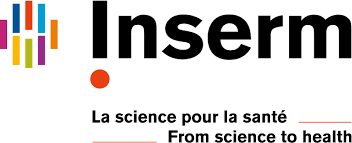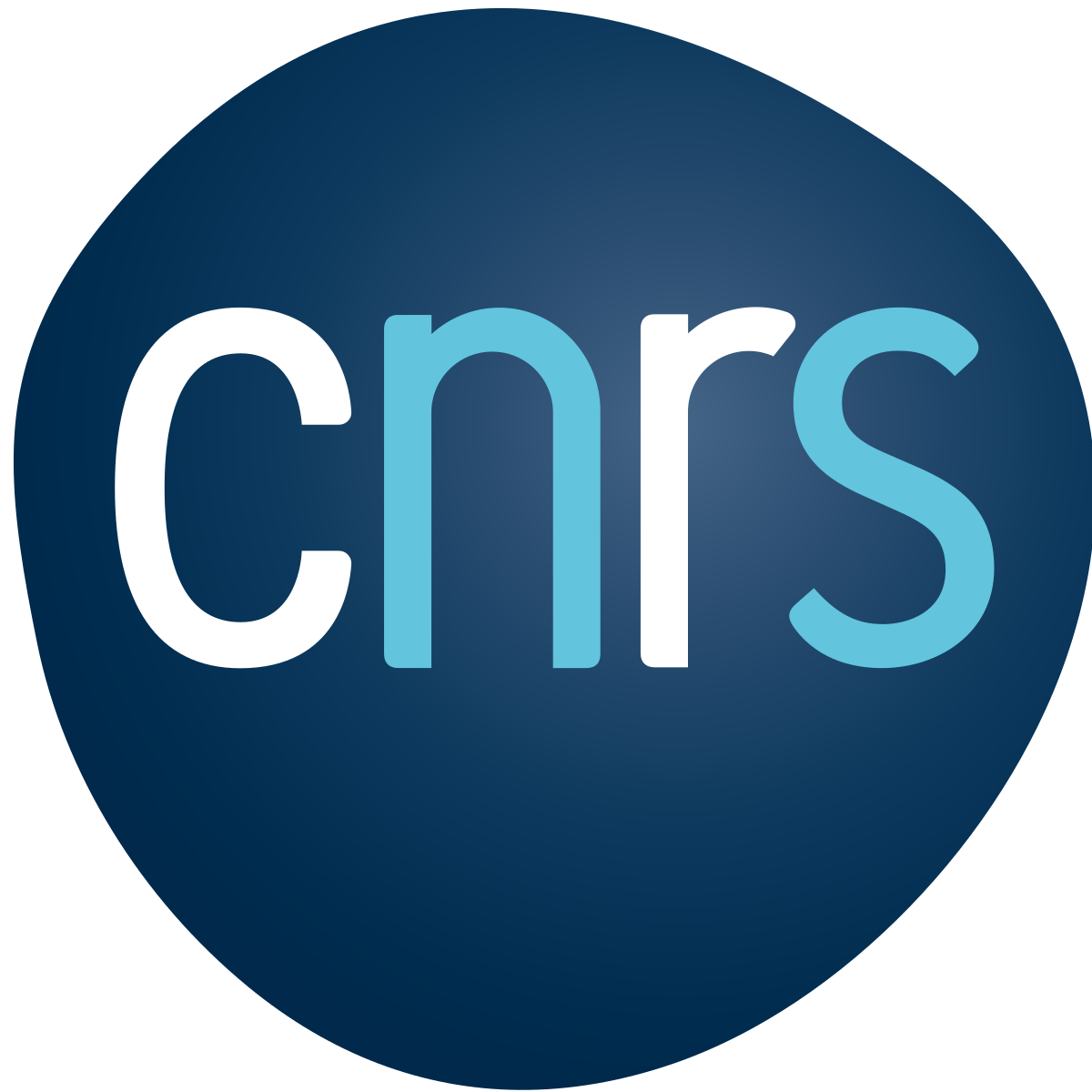Nabi – Nanomédecine, Biologie Extracellulaire, Intégratome et Innovations en Santé
NABI Laboratory: Mission and Objectives
The NABI Laboratory (Nanomedicine, Extracellular Biology, Integratome, and Health Innovations), established on January 1, 2025, by Université Paris Cité, CNRS, and INSERM, aims to develop next-generation therapeutic approaches and make them accessible to the greatest number of patients.
Through interdisciplinary research and our technology accelerator, the IVETh Bioproduction and Biotherapy Integrator, our ambition is to democratize biotherapies and de-risk their bioproduction.
Our Objectives
Understanding the role and fate of exogenous and endogenous nanoparticles in the body
- Investigate their properties, transformations, and impact within the organism.
- Decipher intercellular communication mechanisms involving biological nanoparticles (extracellular vesicles, viral particles, mitochondria, etc.).
Developing innovative (bio)therapies
- Leverage biological nanoparticles as therapeutic vectors in nanomedicine or as alternatives to cell therapies.
- Optimize immunotherapies and other precision treatments through external physical control.
- Overcome treatment resistance mechanisms with innovative delivery strategies.
Integrating bioproduction challenges
- Develop robust, controlled, and eco-friendly processes for the production of biological nanoparticles for therapeutic use.
- Ensure the reproducibility, safety, and scalability of manufacturing processes through AI-driven optimization for industrial and clinical transfer.
- Develop quality control methods at the nanometric scale.
Facilitating the transfer of innovations to clinical applications
- Transform scientific breakthroughs into concrete medical applications.
- Bridge the gap between fundamental research and clinical trials to directly benefit patients.
Promoting an interdisciplinary and collaborative approach
- Bring together researchers in engineering, physics, biology, medicine, chemistry, and AI for an integrated approach.
- Develop partnerships with academic institutions and industry to accelerate innovation.
Addressing global and planetary health challenges
- Contribute to disease prevention and treatment by developing safer, more effective, and more targeted therapies.
- Integrate environmental and ethical considerations into the development of nanomedicines and bioprocesses.
The NABI Laboratory is committed to pushing the boundaries of nanomedicine to make biotherapies accessible to all and to secure their large-scale production.
News
Seminar – “Advances on drug delivery systems for alternative administration routes”
Seminar by Dr. Javier O. Morales on the Tuesday, March 12th, at 12 pm in room Leduc . Topic: "Advances on drug delivery systems for alternative administration routes"
Seminar – “Intérêt des vésicules extracellulaires délivrées par PIPAC dans le modèle des métastases péritonéales d’origine colique”
Seminar by Marc Pocard and Paul Rozenbaum on the Tuesday, January 23rd at 12 pm in room R229. Topic: "Intérêt des vésicules extracellulaires délivrées par PIPAC dans le modèle des métastases péritonéales d'origine colique"
Seminar – “Multidimensional Single Molecule Localization Microscopy”
Seminar by Bassam Hajj from Institut Curie on the 16th of January at 12 pm in room R229. Topic: "Multidimensional Single Molecule Localization Microscopy"
Entretien entre Patricia Dayley de l’Université de Columbia et Vincent Fleury
Patricia Dayley anime un séminaire à l’Université de Columbia sur le rapport entre les humains et les arbres, à travers les époques, et les diverses formes d’arbres. Dans ce contexte elle a longuement reçu Vincent Fleury pour un entretien dans le “Library Chat” de l’Université de Columbia, enregistré à Paris dans leurs locaux proches de Montparnasse. L’entretien porte sur les concepts d’arbre, de développement, d’universalité, la différence entre les animaux et les plantes, la place et le ressenti de l’homme au sein des êtres vivants, ainsi que les derniers travaux sur le mécanisme embryologique de formation des humains.
MSCmed participe au projet d’immersion de lycéens du Lycée Le Corbusier de Poissy
De nombreux professeurs de lycées ont des initiatives pédagogiques destinées à renforcer l’intérêt de leurs élèves pour les sciences. Au Lycée le Corbusier, depuis plusieurs années, des élèves se voient proposer un projet d’immersion d’une semaine dans un laboratoire sur un projet scientifique avancé, souvent scientifiquement original. Le laboratoire MSCmed (futur NABI au 1er Janvier) a reçu trois élèves pour un projet d’étude de toxicité sur des vaisseaux sanguins. Les élèves ont pu incuber des embryons et tester des produits toxiques (exemple éthanol) et suivre en vidéo-microscopie de Time-Lapse les dégâts causés sur la vasculature puis la récupération par le tissu. A l’issue de la semaine, une présentation par affiches, semblable aux présentations de colloques scientifiques, est organisée dans le CDI du Lycée. Les chercheurs ont été impressionnés par la qualité, le sérieux et le quasi professionnalisme des présentations. Félicitations aux Lycéen.ne.s et aux enseignants qui organisent ce projet.
Une avancée importante dans la compréhension de l’origine de l’homme
L’origine de l’homme est une question importante, une des plus passionnantes scientifiquement. Les travaux sur cette question sont essentiellement des travaux de paléontologie, d’une part, et des travaux de paléogénomique d’autre part. Cependant …
Florence Gazeau reçoit la Médaille d’Argent du CNRS
Florence Gazeau, Directrice de recherches au CNRS, directrice adjointe du Laboratoire Matière et Systèmes Complexes, et chef d’équipe MSC-med, implantée à l’école de médecine, vient de recevoir la Médaille d’Argent du CNRS pour l’ensemble de ses travaux.
Kick-off meeting of the PEPR Beacter-Ev-Booster project
We were extremely thrilled to launch the project Bacter-EV-Booster (~3.5 M EUR) funded by France2030.
Seminar – “Characterization of mucosal viral immune responses and their modulation by natural polyamines”
Seminar by Nikaïa Smith, December 5th 2023, 12pm, Salle des thèses. Topic: "Characterization of mucosal viral immune responses and their modulation by natural polyamines"
Seminar – “Allying Chemistry and Biology to Tackle Epigenetics in Human Diseases”
Seminar by Paola Arimondo, November 21st 2023, 12pm, Lavoisier C. Topic: "Allying Chemistry and Biology to Tackle Epigenetics in Human Diseases"
